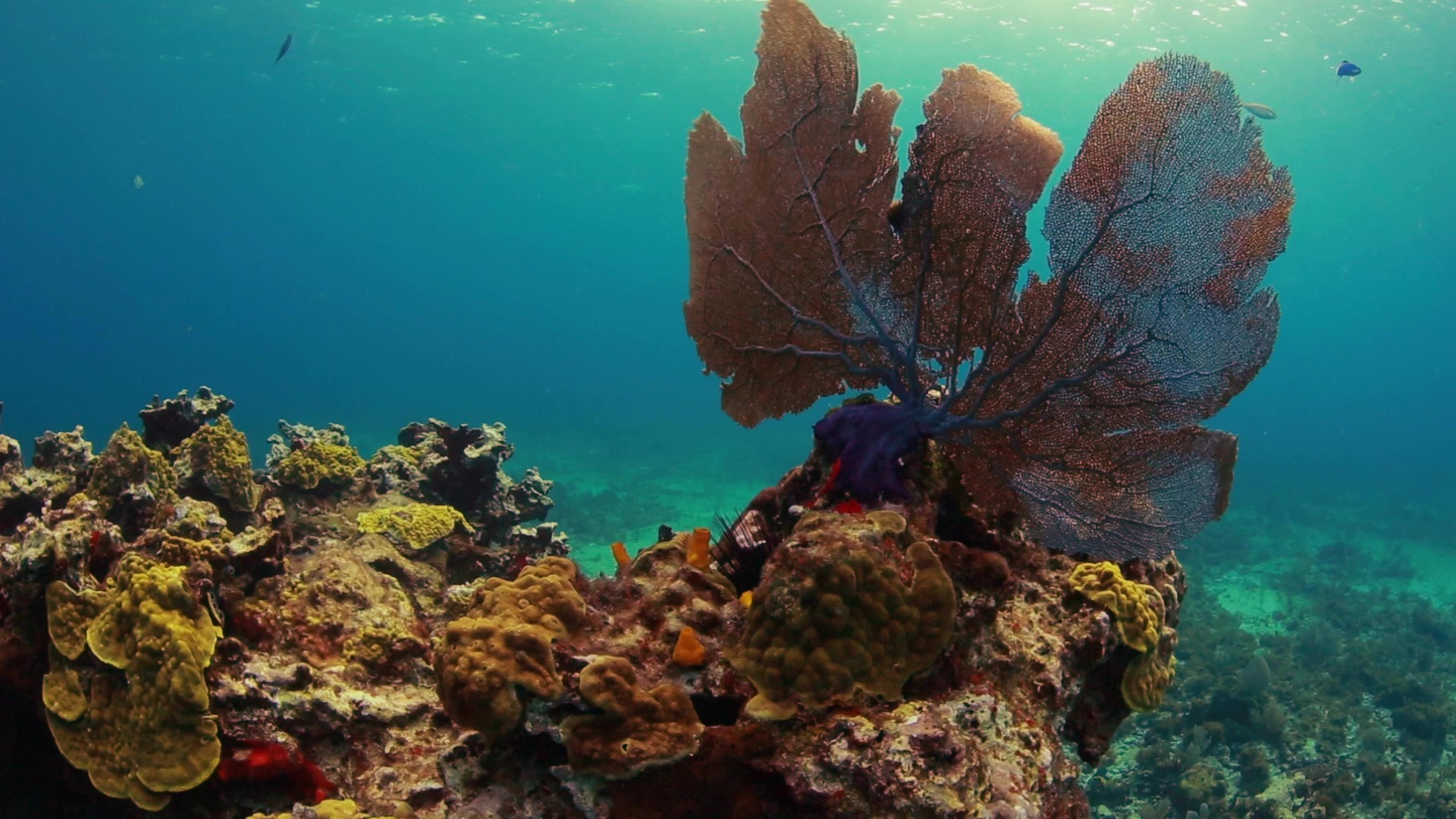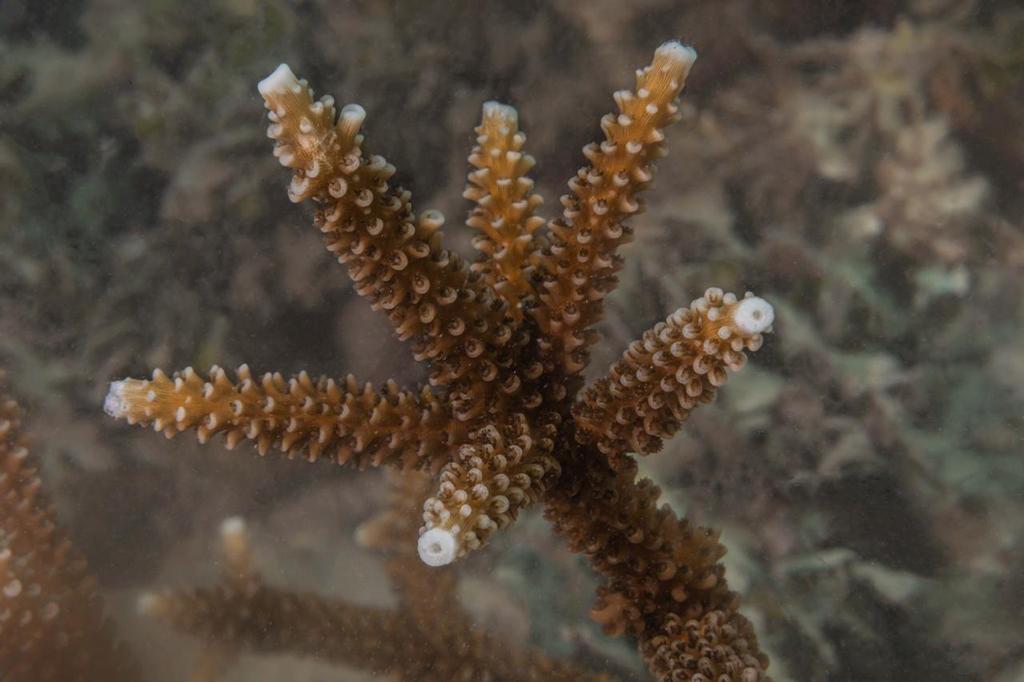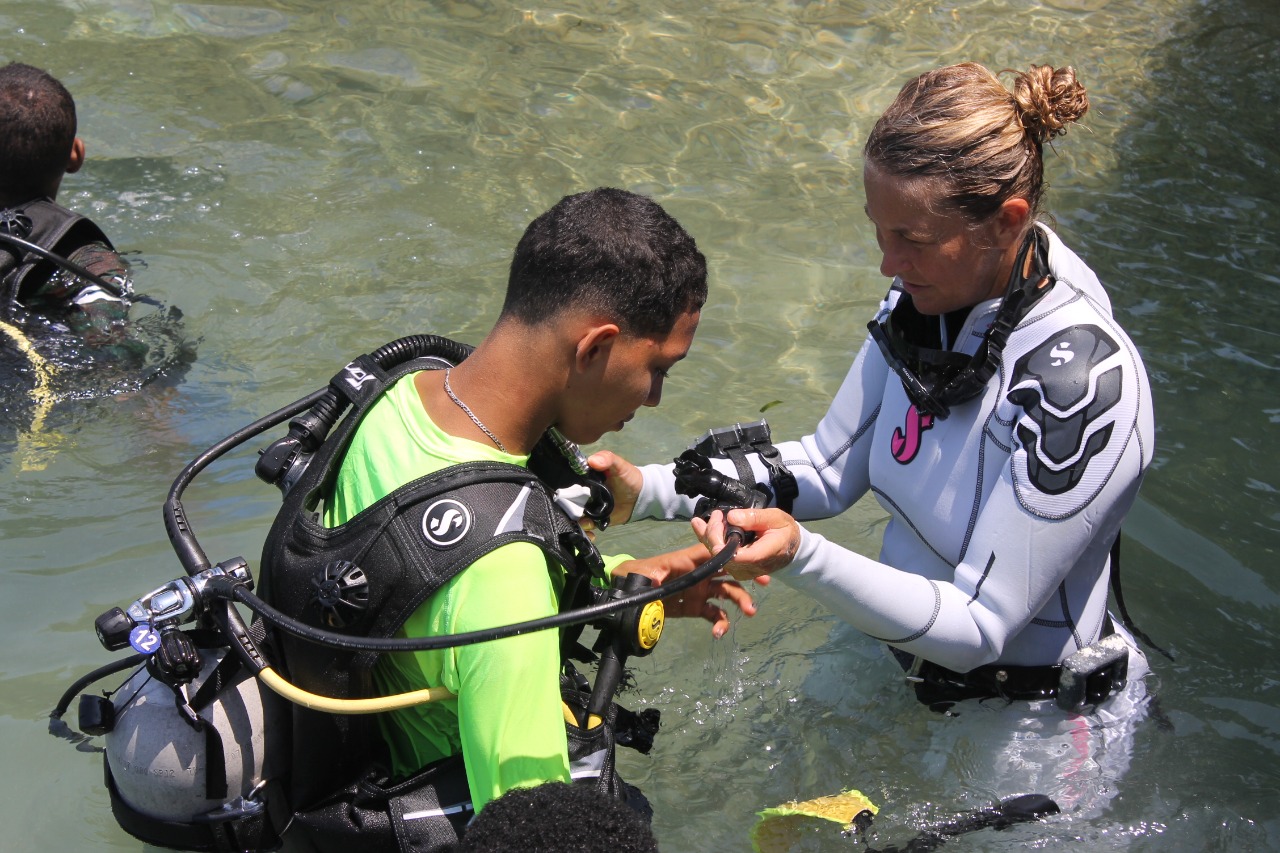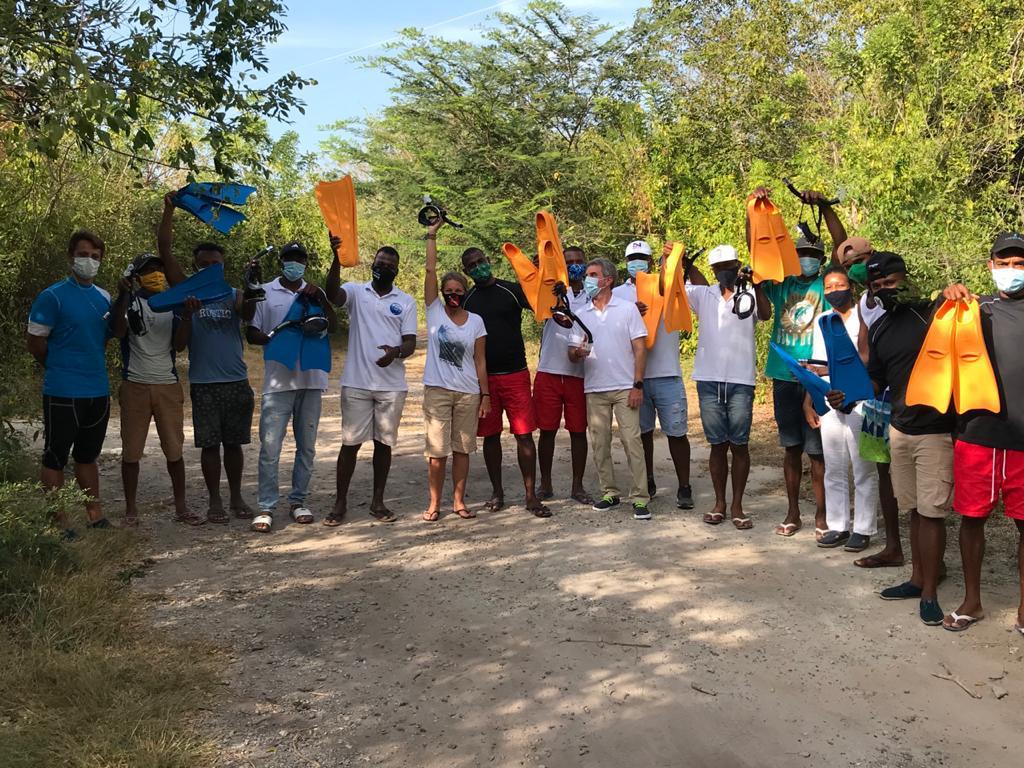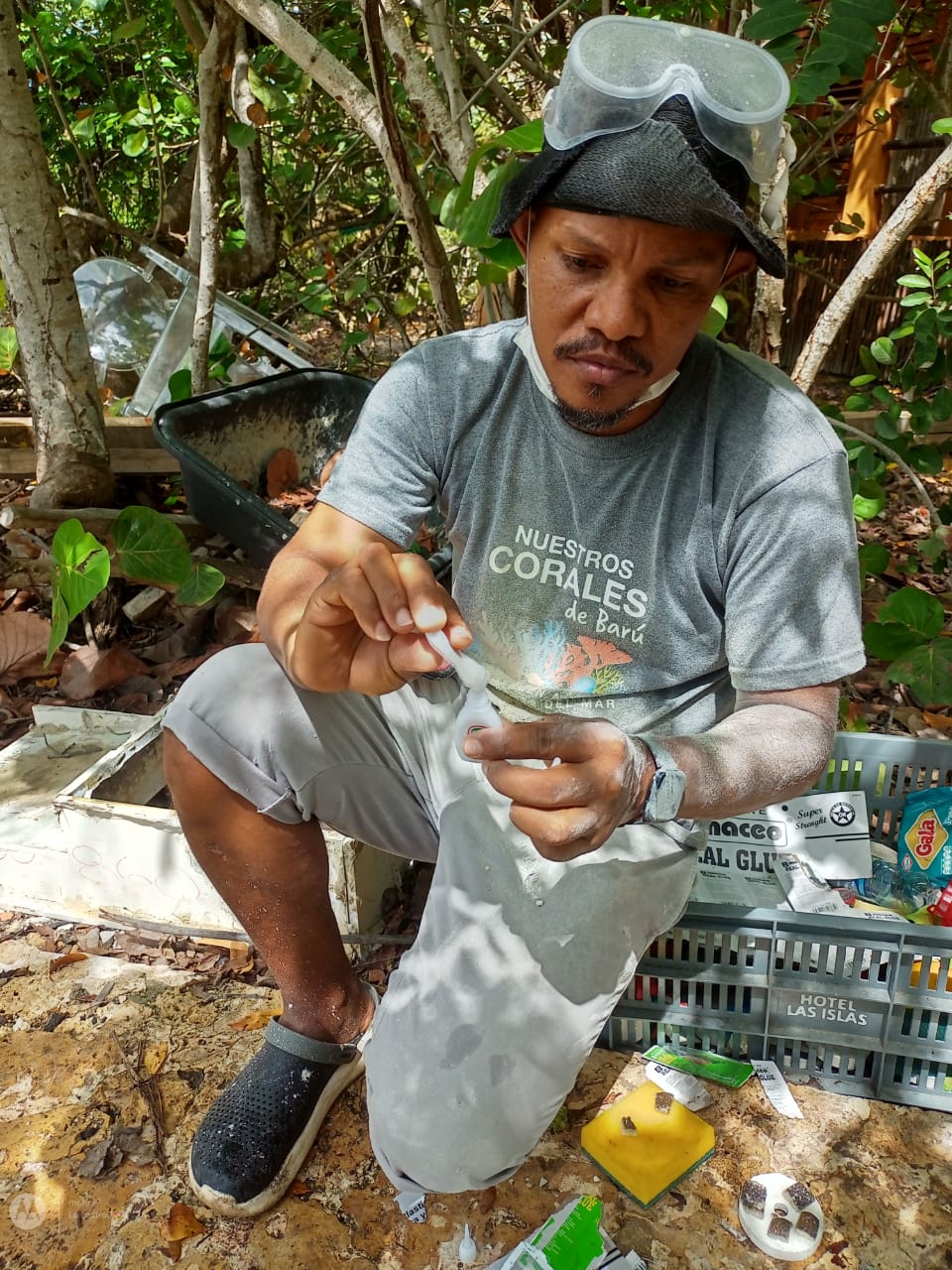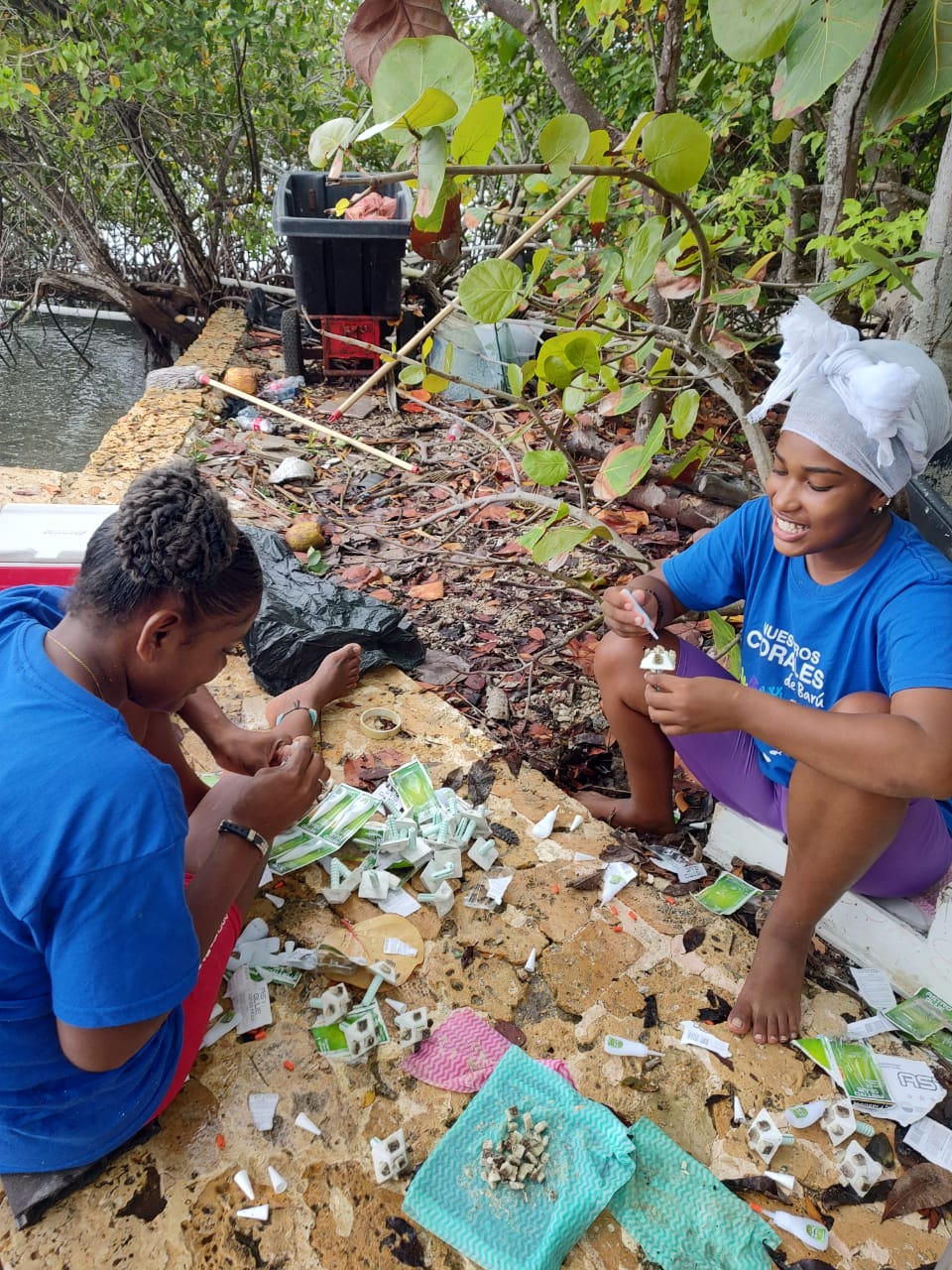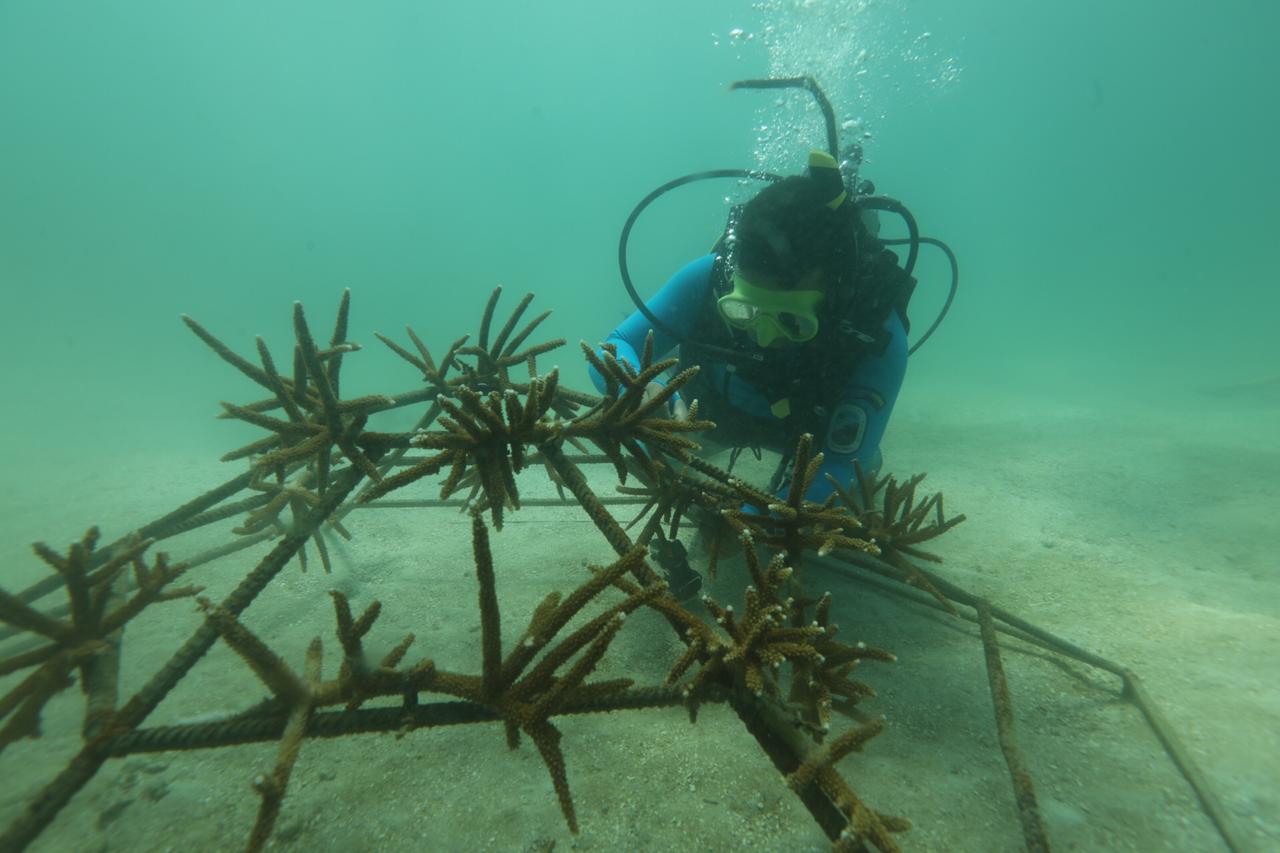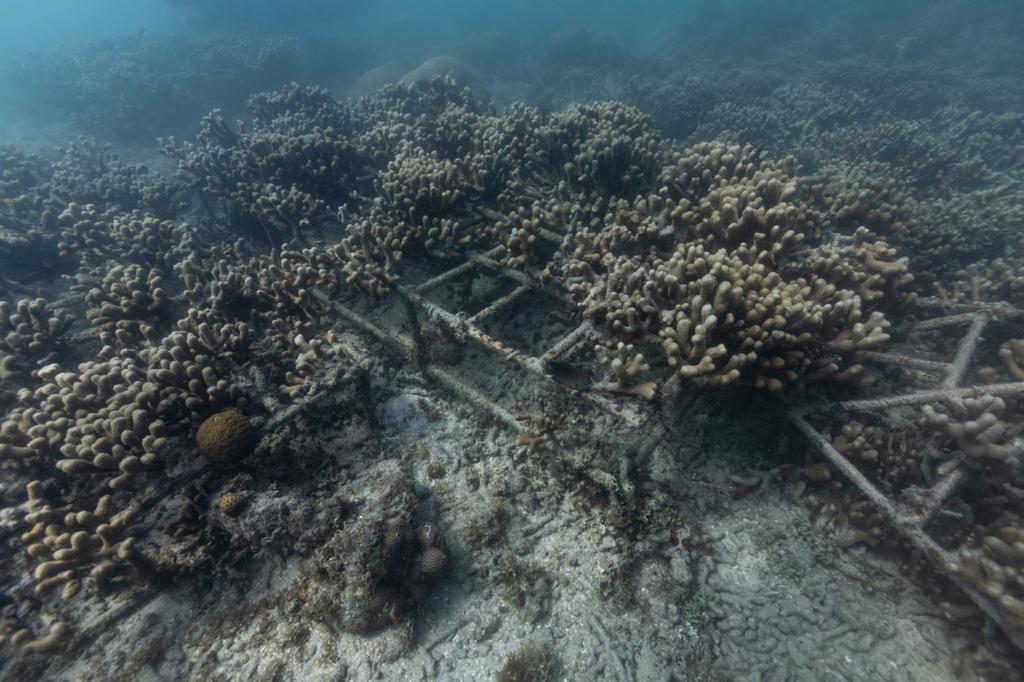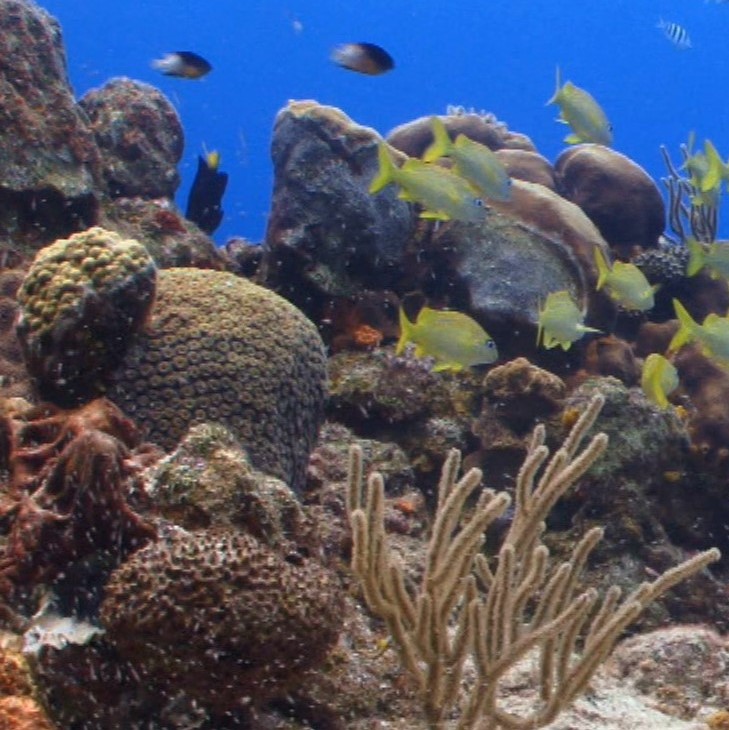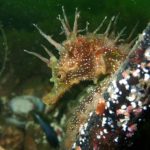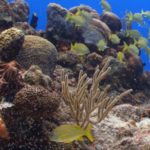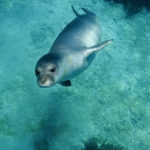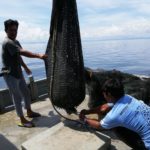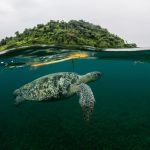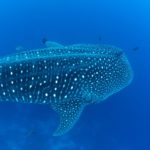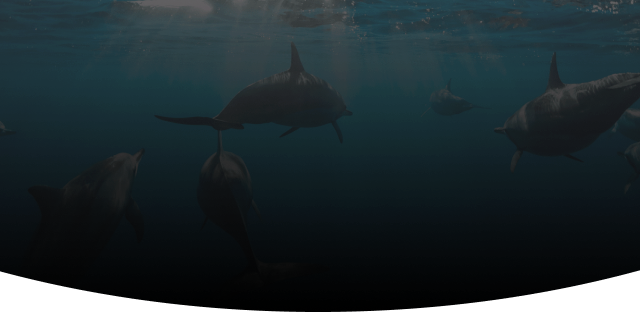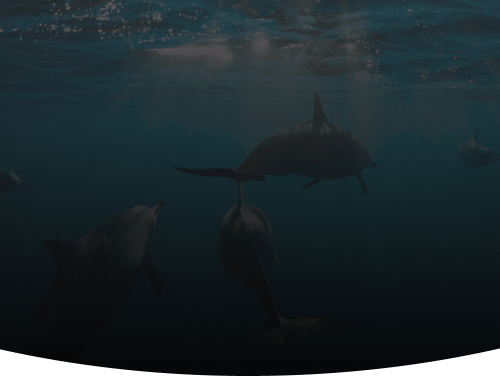Take Action
The coral reefs of Barú Colombia, has been severely damaged from destructive fishing techniques. This leads to reduced food security and coastal protection to the local community. CoralConnect is bringing back corals through strategic propagation and replanting of corals into protected areas. Working with the local community to conduct the replanting, they are connecting the community to their natural heritage, fostering respect for their ocean which will be crucial for long-term success of projects like this.
What are we fundraising for?
•Salaries for the local coral gardeners to transplant coral fragments into permanent structures.
Why:
•Increase density of local coral reefs.
•Increase local respect for reefs.
•Provide alternative sources of income to coastal communities.
Goal: €8.388,00
Donate nowSea the Work
Project budget
Yearly budget: € 40.000,80
Budget secured: 0%
53%
Workforce
42%
Fieldwork
5%
Operational
Deep dive
Fundación Malpelo y Otros Ecosistemas Marinos (Fundación Malpelo), established in 2000, is a Colombian nonprofit organization dedicated to conserving Colombian biodiversity. They run many different projects focusing on different species and habitats. Their work intertwines scientific research political agendas and community outreach – all of which should be integrated for sustainable long term positive outcomes. Fundación Malpelo is in a great position to make real change as their fearless and politically experienced leader, Sandra Bessudo tackles these issues with her team.
CoralConnect: Community restoration is their project focusing on the restoring and protecting of coral reefs in Barú. Coral reefs are not just colorful underwater spectacles; they are essential for the well-being of entire world and particularly for coastal communities.
On a global scale, they are one of the most biodiverse ecosystems in the planet and they have a significant role in regulating the Earth’s climate, as they absorb and store carbon dioxide, helping to mitigate climate change. But coastal communities are those who will feel the consequences of degraded reefs sooner and more intensely; and preserving these underwater wonders is not just a matter of environmental conservation but a matter of sustaining the livelihoods and resilience of communities that depend on them. They not only provide an essential food source and support local economies by providing a livelihood through fishing and tourism, but also provide irreplaceable costal protection from storms.
Corals around the world are being degraded by both natural and man-made factors. The lack of ecological knowledge in some coastal communities has led to destructive types of fishing such as dynamite fishing and bottom trawling, which destroy the coral reefs of the area. This destruction can be irreversible if left to the side, but we can try to recover what has been destroyed.
Coral gardening is a term used often for restoring coral reefs. Much like when someone tends to their home garden and propagate their basil or cacti. There are many different techniques used to recover reefs, some more effective than others. The micro fragmenting technique is considered one of the most efficient techniques in terms our resource management and overall resilience of new coral colonies. This is one of the techniques used by CoralConnect to accelerate coral growth normal rates. You can learn more about it in the Areas of work section below.
CoralConnect has been working on this project since 2018, having made an appropriate selection for the restoration site at an MPA which will help keep the restored corals protected. Local community members are trained by experts in the appropriate techniques and become the coral guardians in Barú. They tend to the corals in the nurseries and transplant them to their final home at the restoration sight where they will hopefully grow for a long time. The project, in collaboration with a local hotel, also facilitates the opportunity for the coral gardeners to earn extra income through ecotourism, guiding the guests through their project and restoration areas. Importantly, by including the community in the core of this restoration project, is increasing local knowledge and care for these reefs and is therefore more likely to see long-term success.
Upon monitoring their work, Coral Connect has astoundingly high survival rate of 87% of final transplanted corals.The transformation of dead corals reefs back to growing coral reefs is astounding, you quickly see an increase in the diversity and population of fish and invertebrates.
Having already restored more than 242m2 of reef, the projects’ current goal is to work with the local community to maintain and transplant the remaining 2500 fragments form the coral nurseries to their final home.
